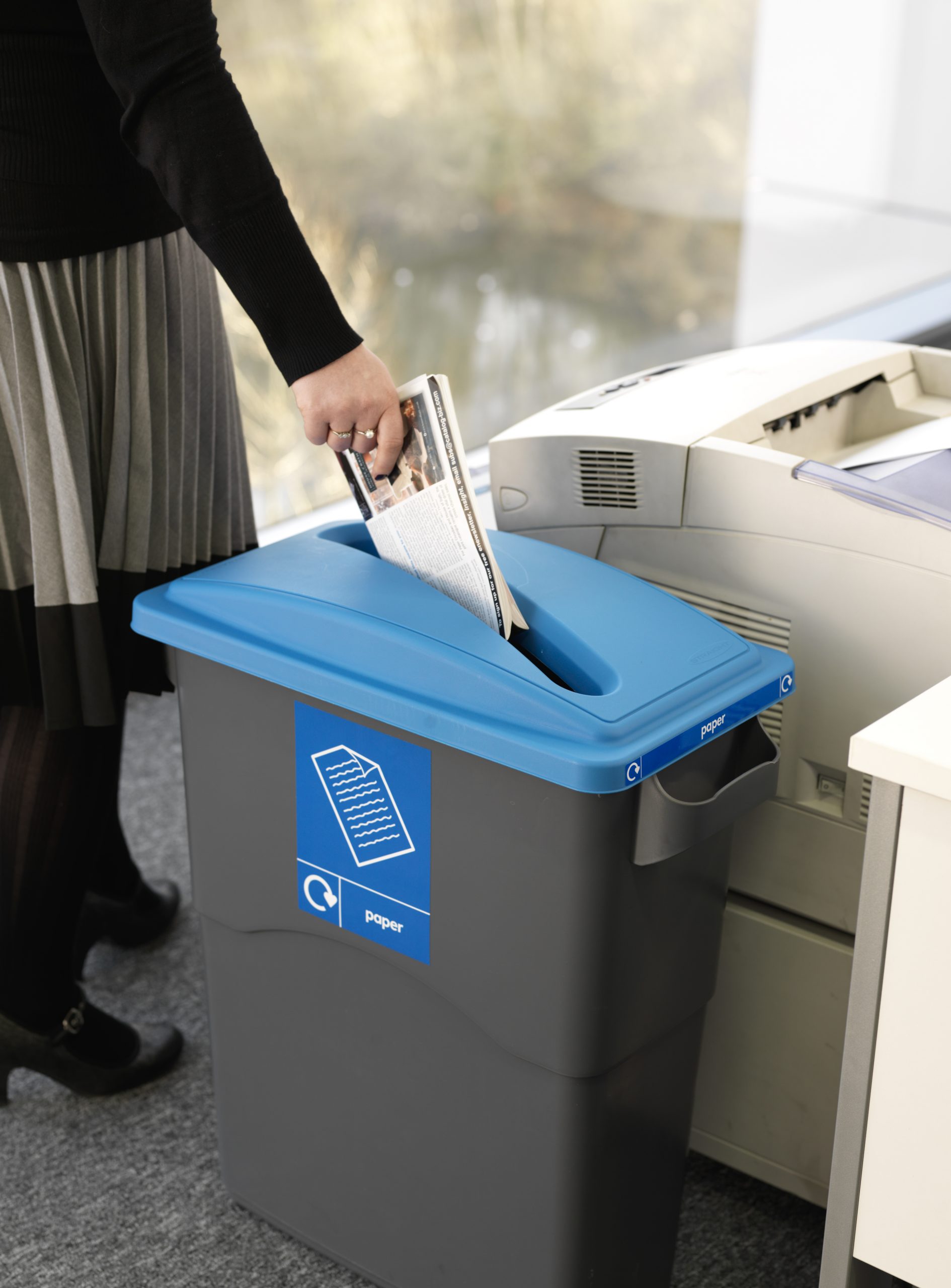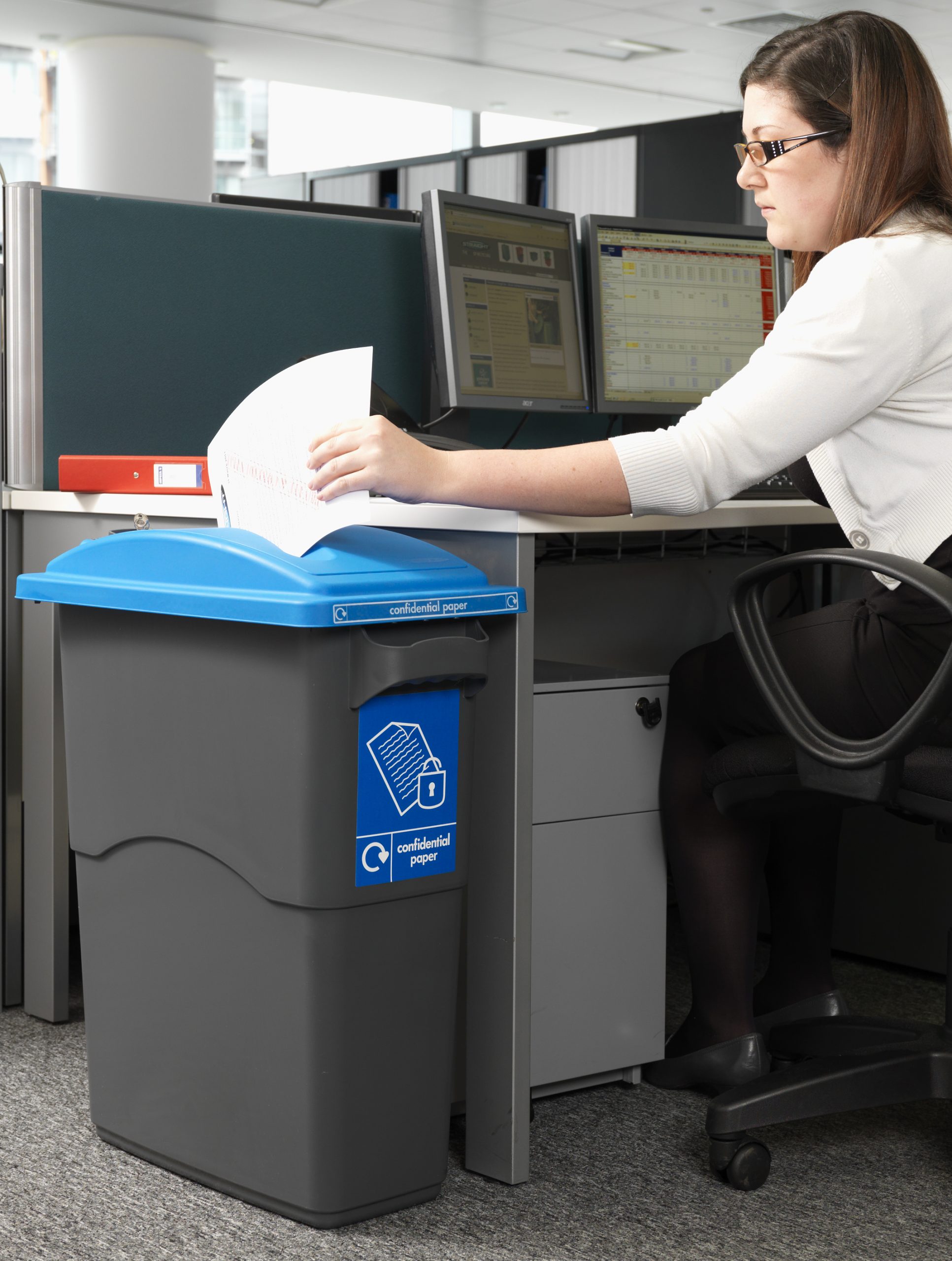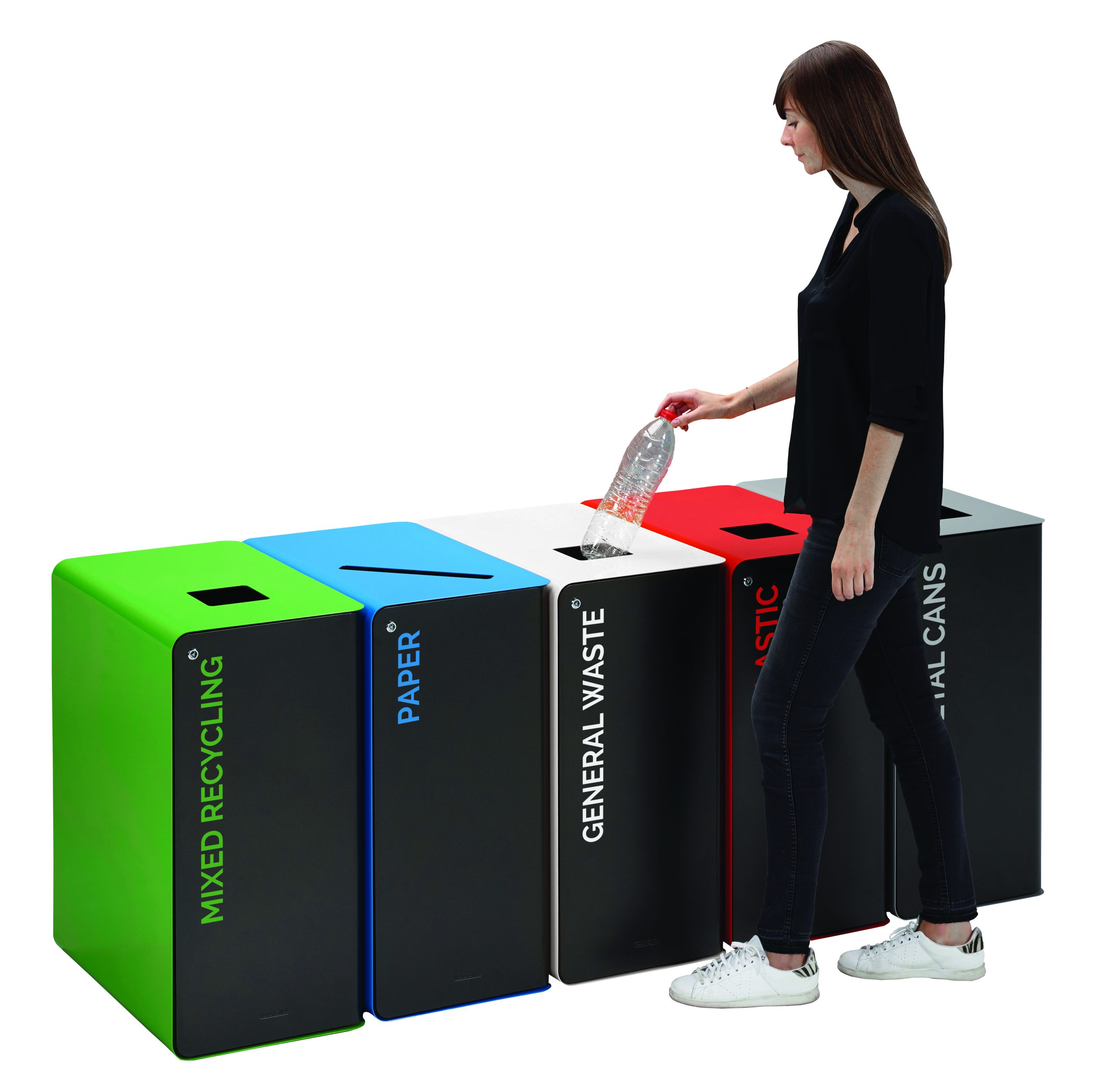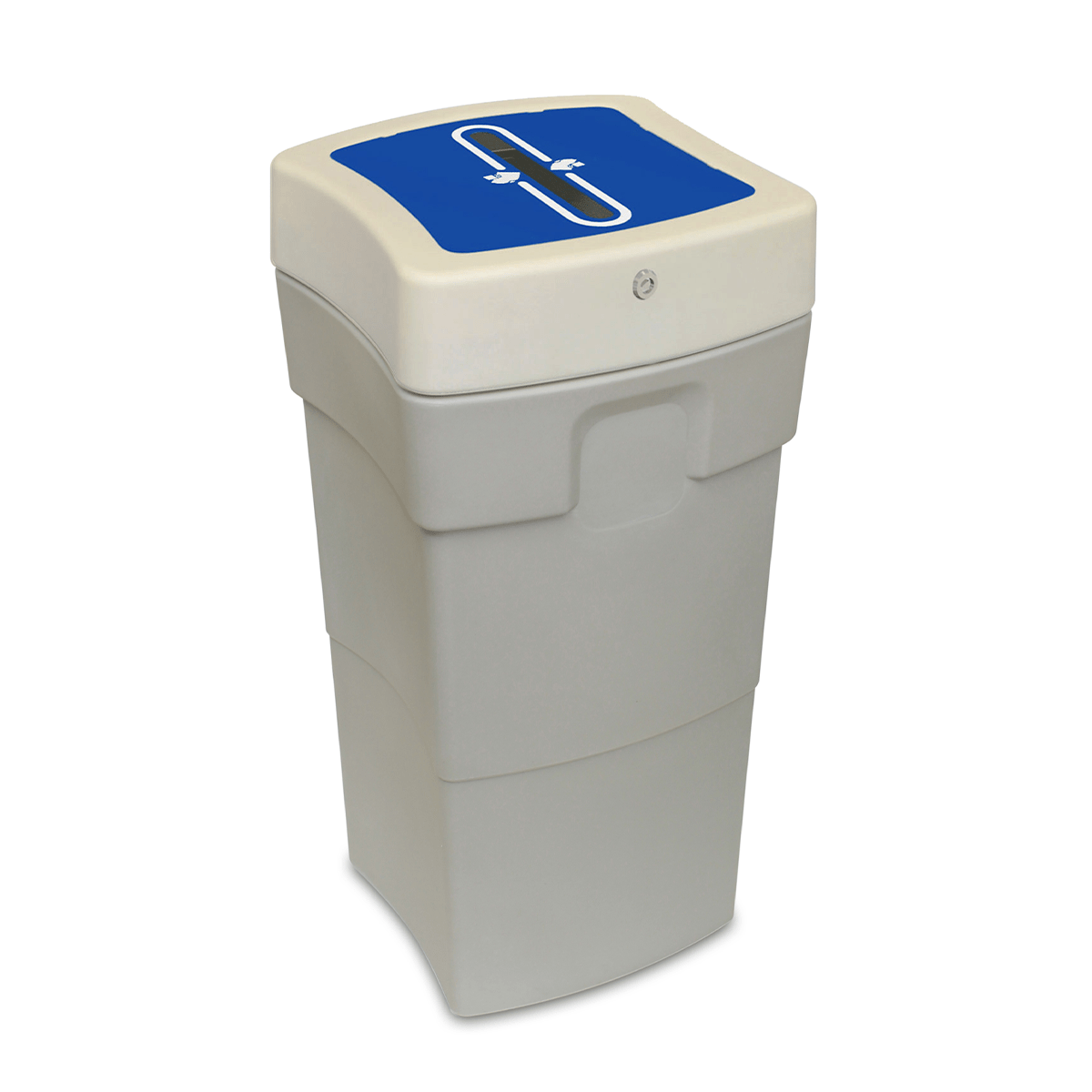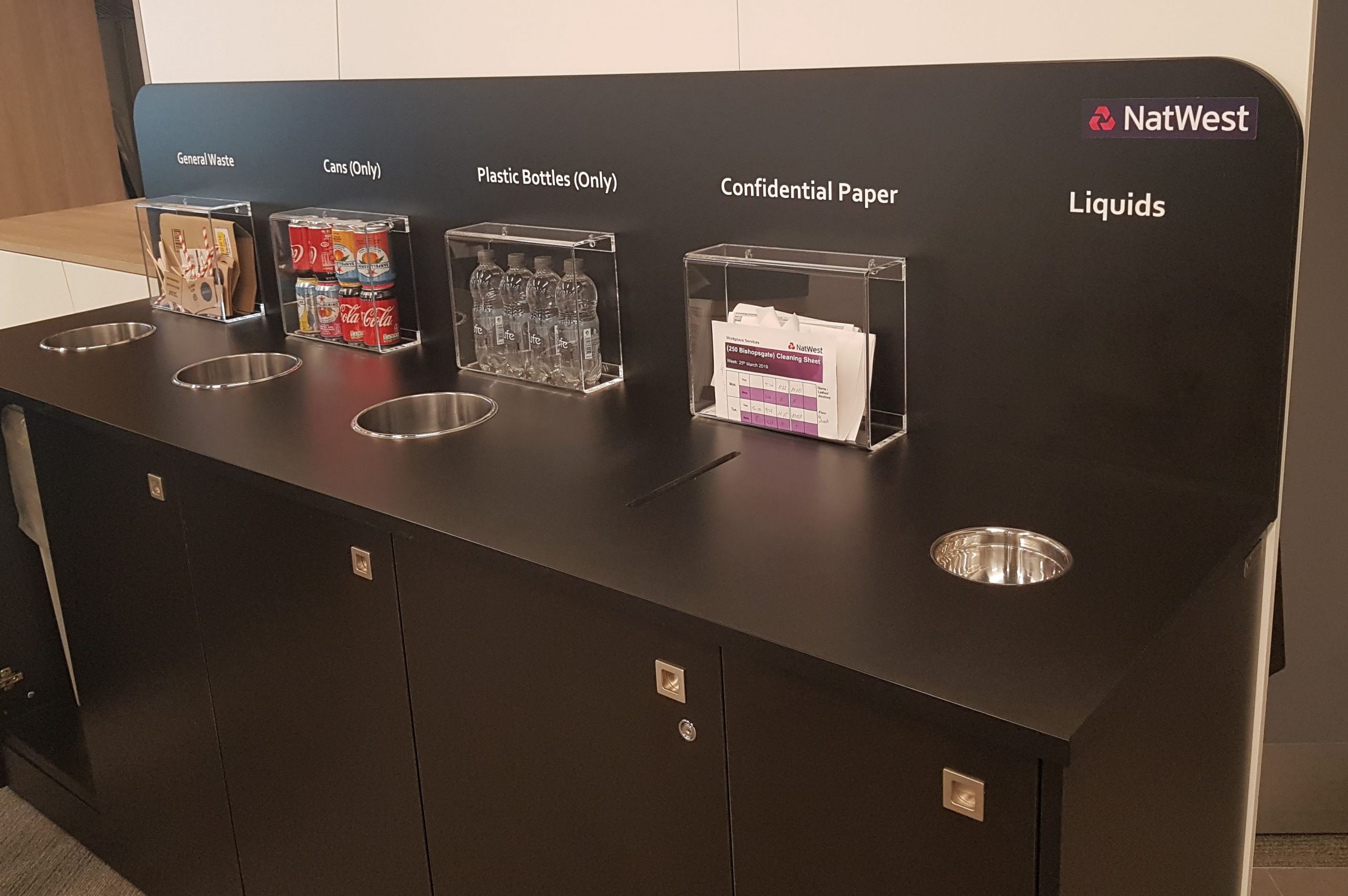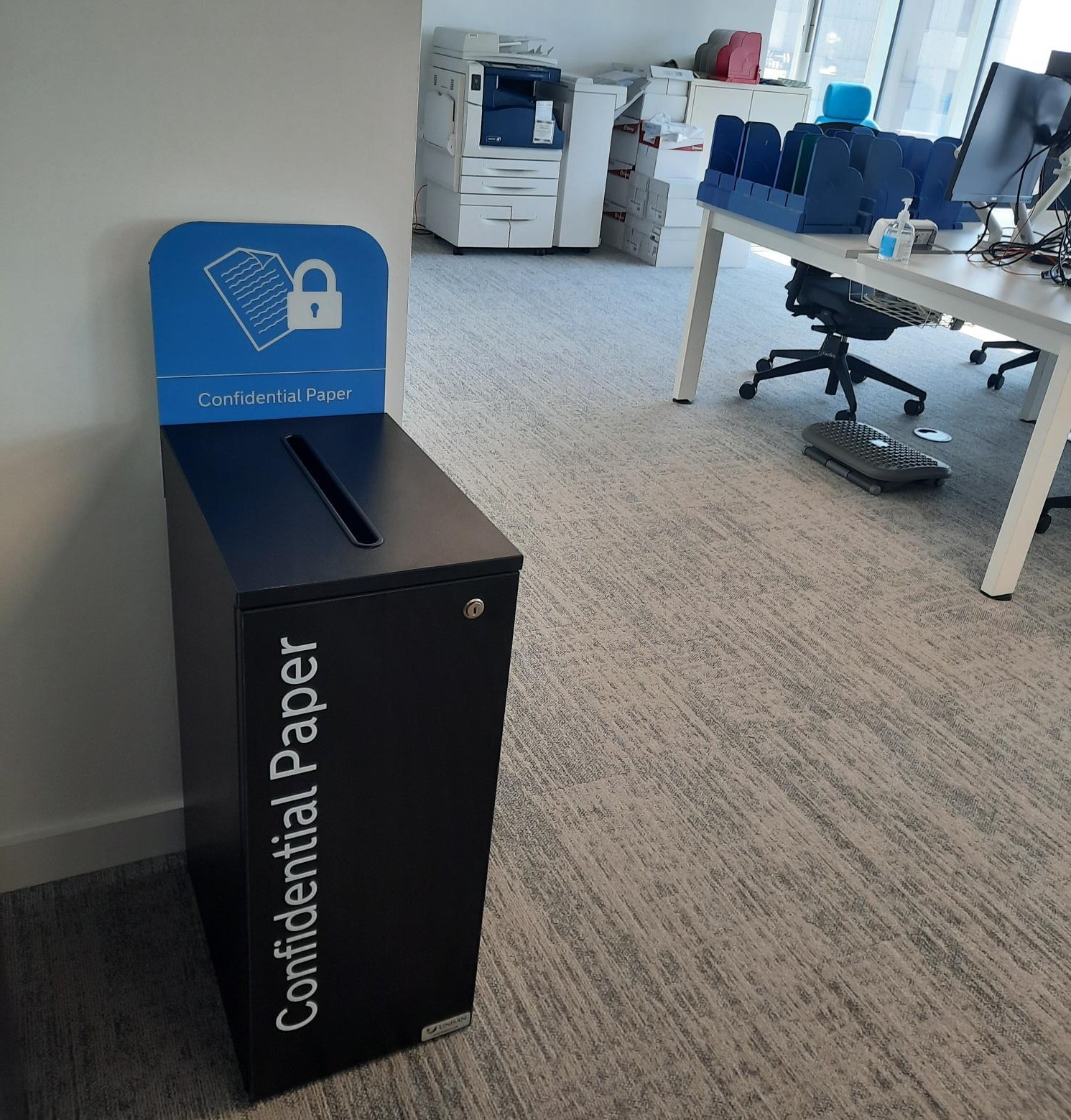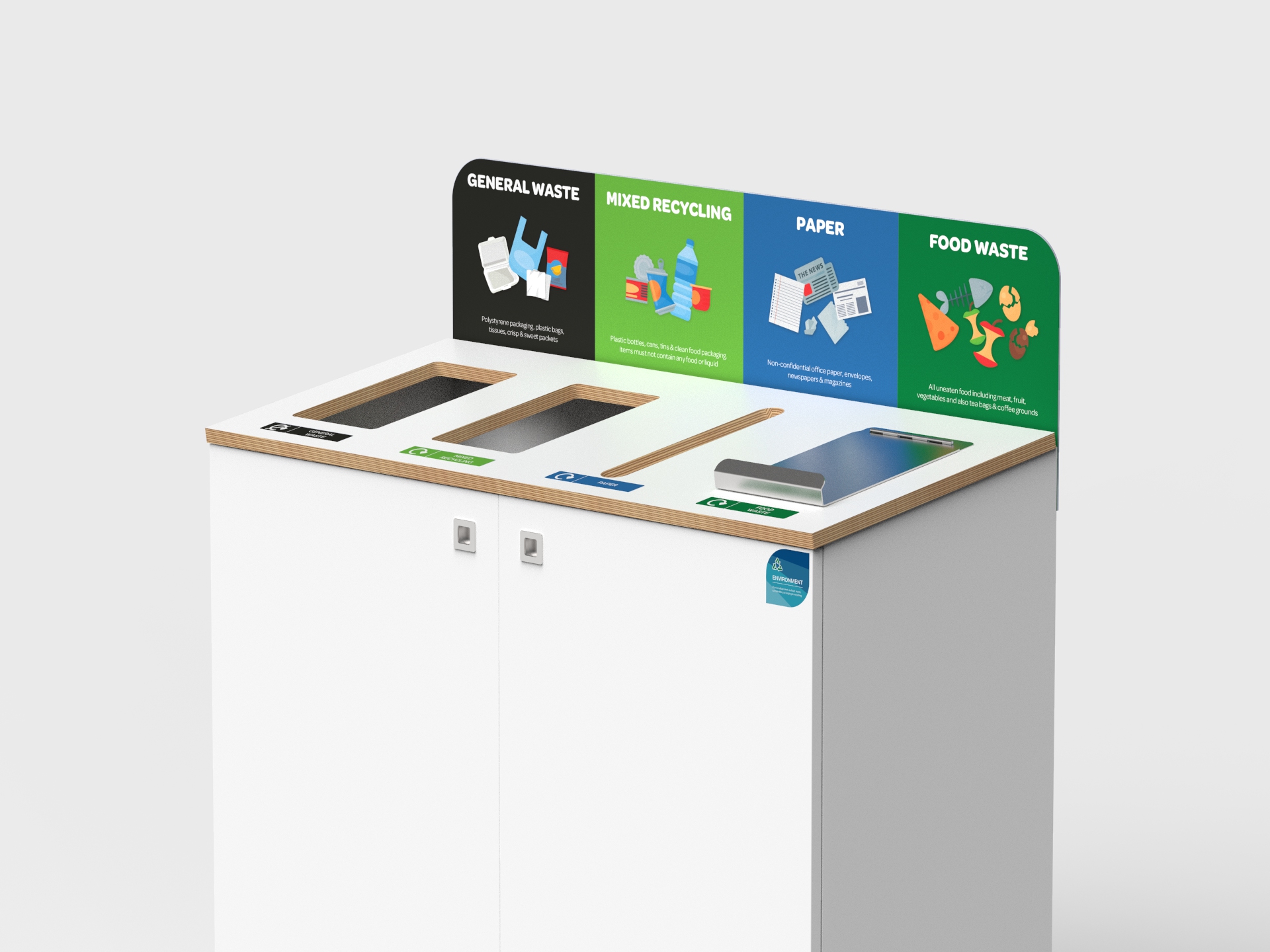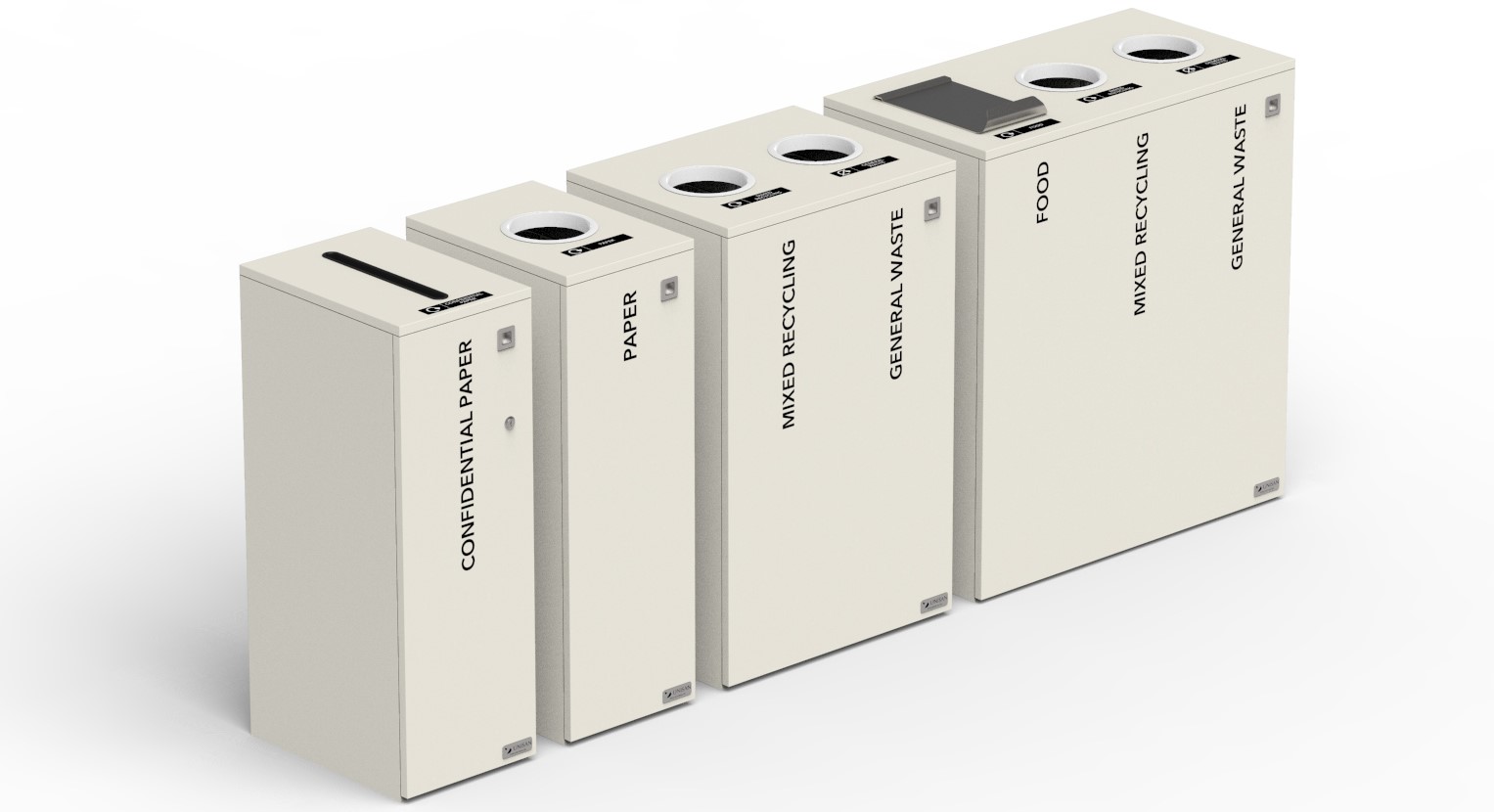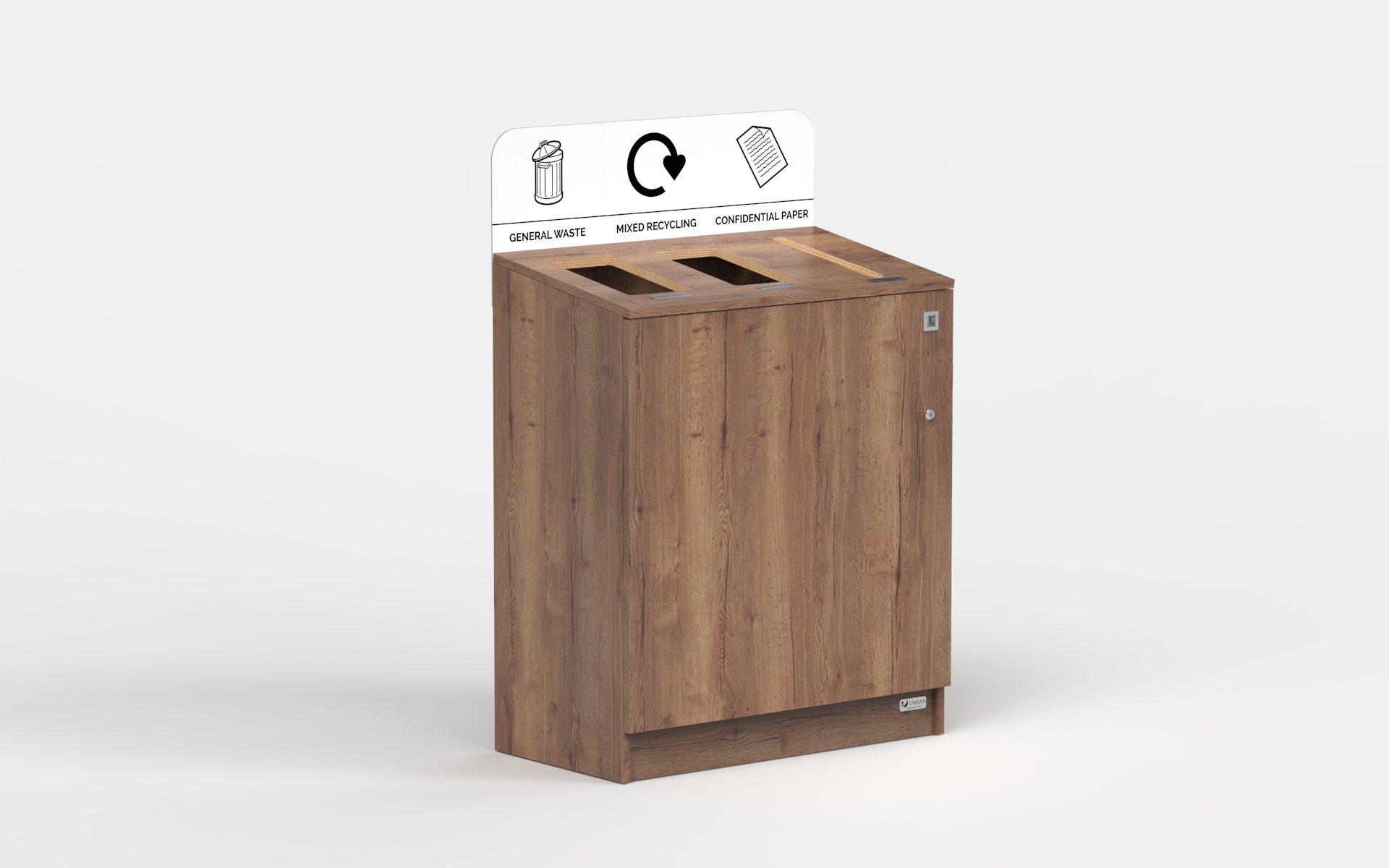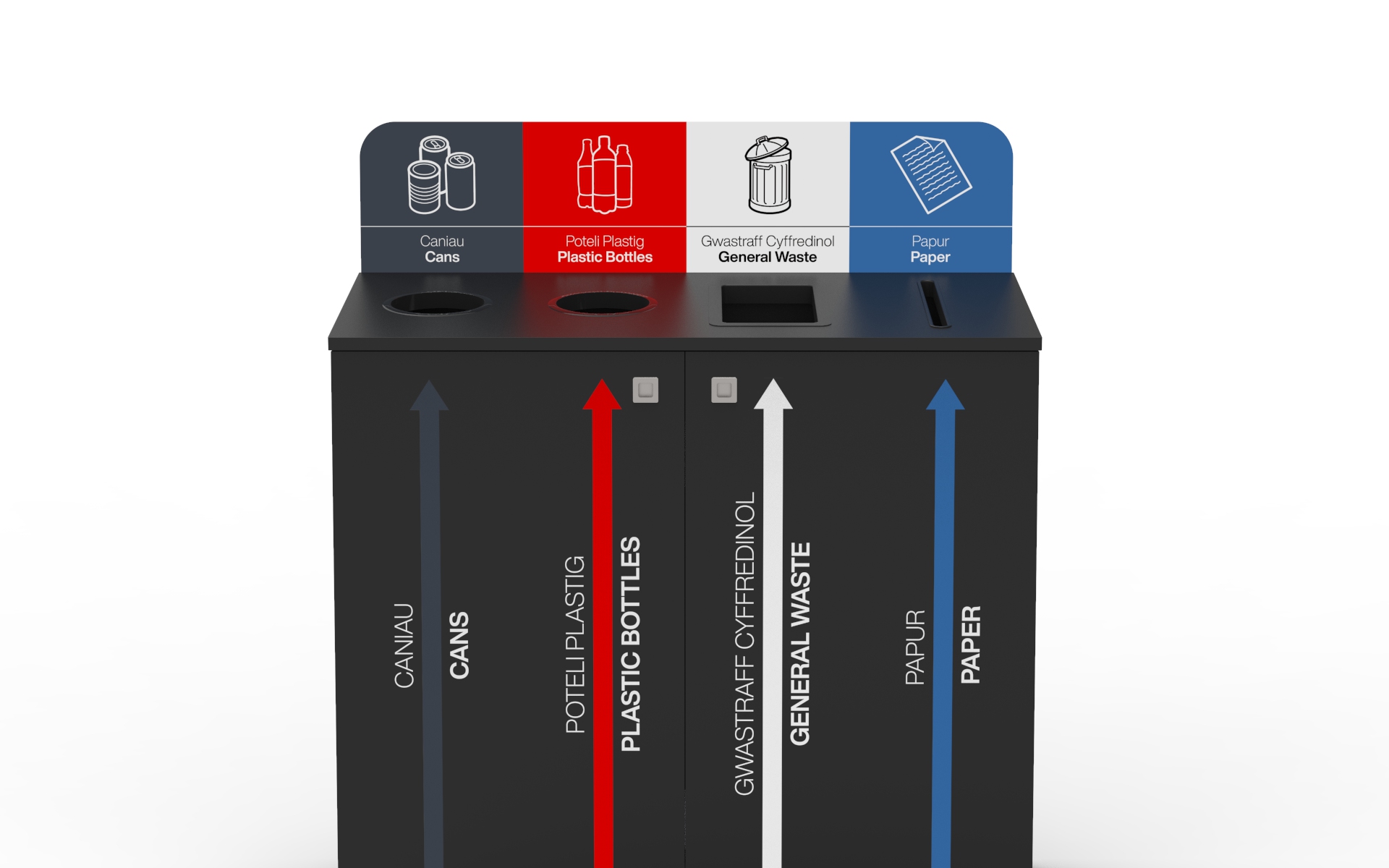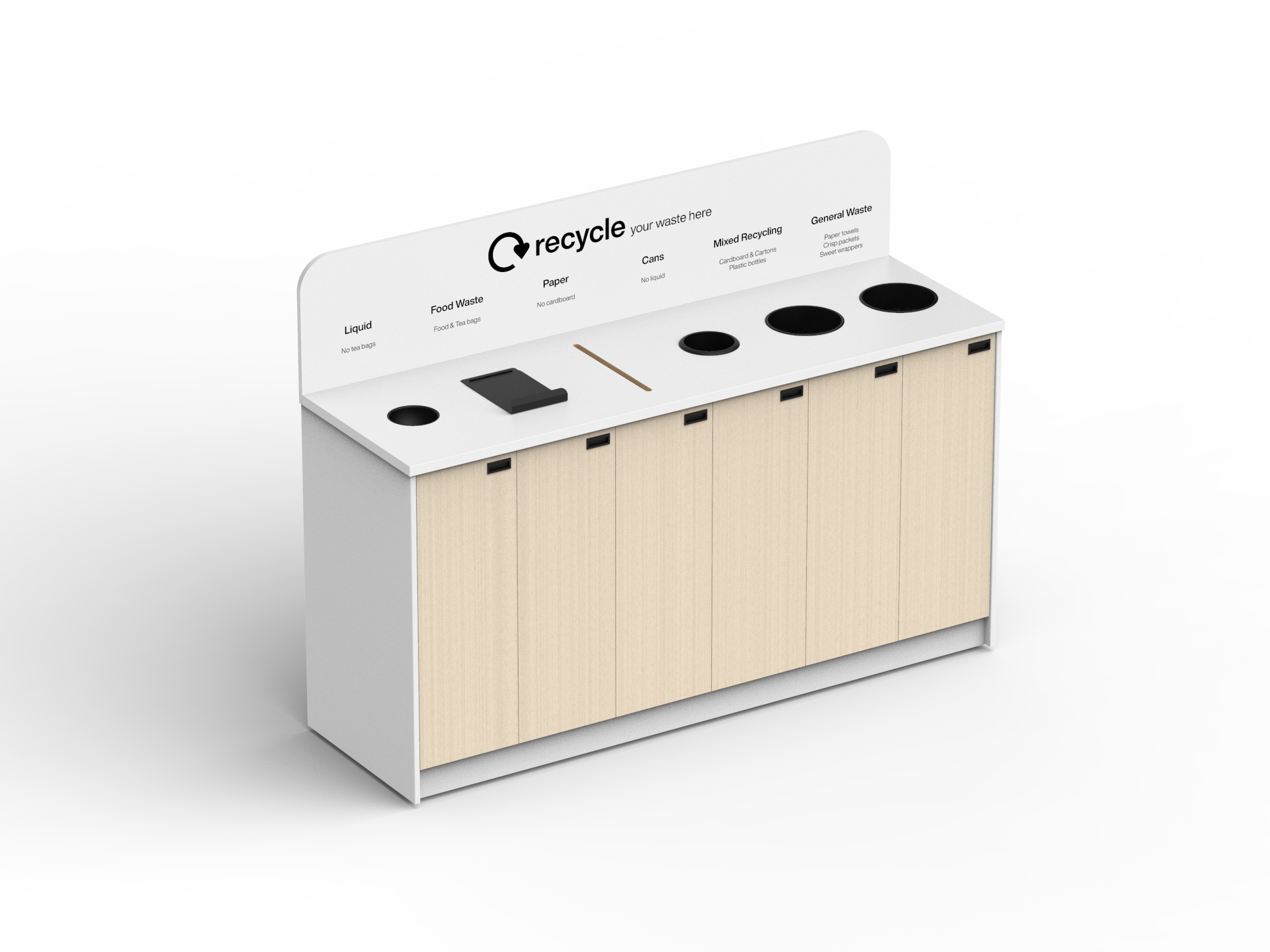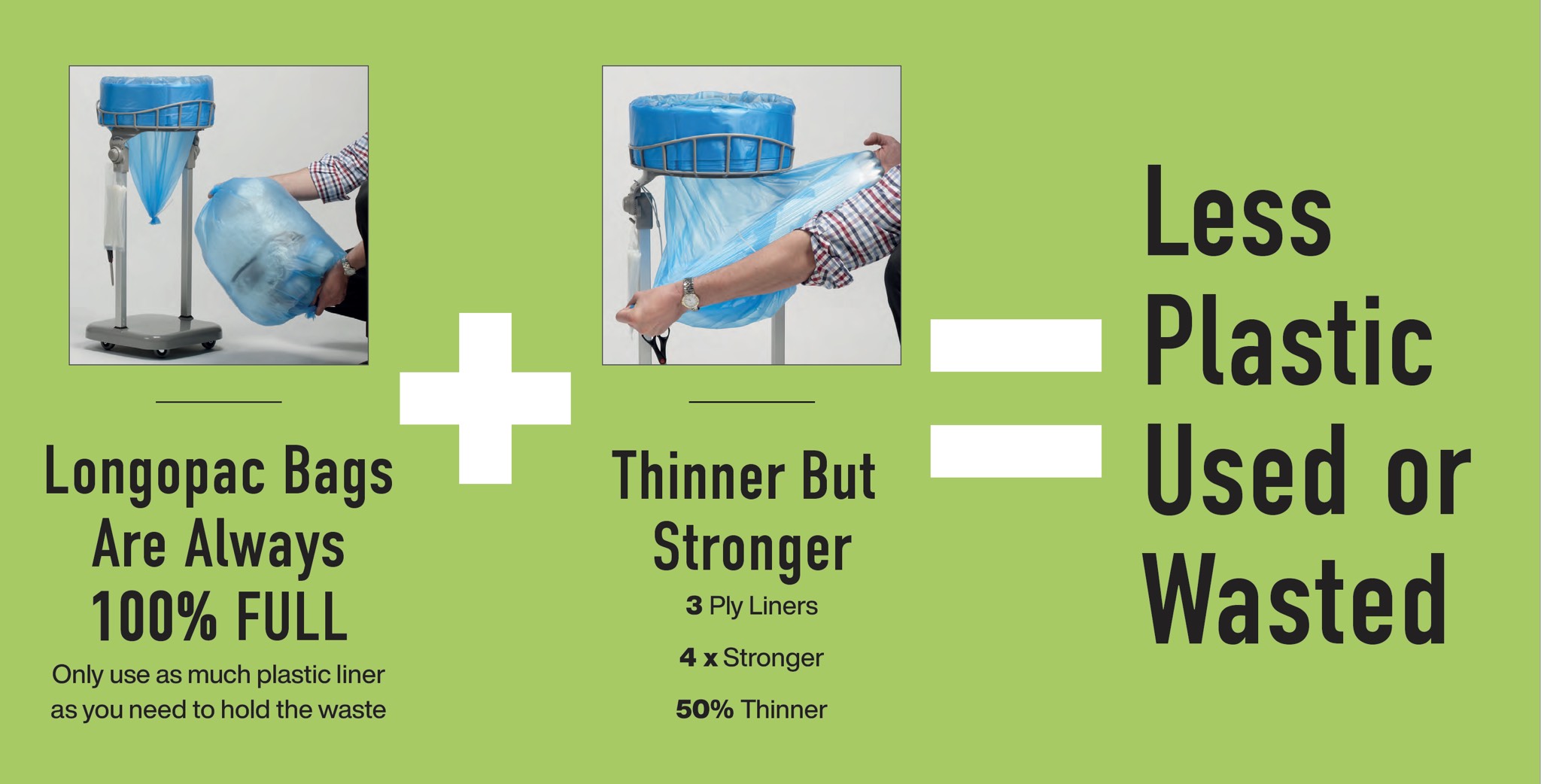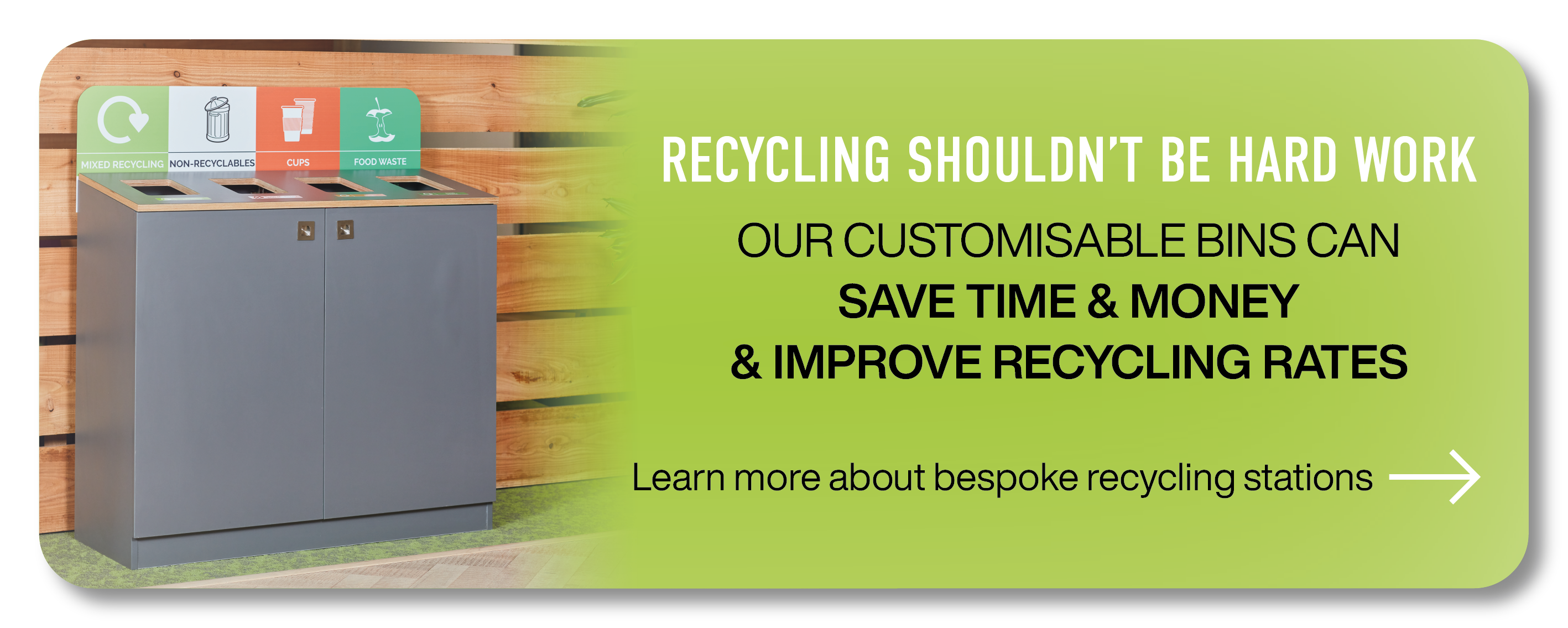Confidential waste refers to documents possessed by any company that can expose discrete information about suppliers, customers or employees. If a third party accesses this type of information, they could carry out fraud, blackmail, or identity theft. Failing to dispose of confidential waste can lead to a variety of negative outcomes for your organisation, not just prosecutions under the law. This could include, for example, identity theft, fraud, and unauthorised copying or sharing or your intellectual property. The cost of identity fraud is nearly £2 billion each year. Therefore, it is crucial that all organisations dispose of their confidential waste securely.
Confidential waste management is clearly a serious issue, which could have negative repercussions if it is not done properly – whether you are an individual or an organisation. Particularly as confidential waste can cover a wide range of items, and it has to be destroyed in a way that can be recorded and evidenced, specialist support is vital. Under the Data Protection Act 1998, all personal data that an organisation stores must be kept secure and disposed of correctly, in order to ensure that any information deemed confidential or personal is not accessible to others. Organisation’s can face huge fines and even jail time if confidential waste disposal is not implemented correctly.
There is strict regulation on how companies should handle and dispose of confidential paperwork. The Information Commissioner’s Office (ICO) deals with infringements of the Act and can impose fines of up to £500,000. Waste collection companies provide staff who are trained and accredited in the skills needed to reliably and securely collect and dispose of all your confidential waste. Anyone who comes into contact with your confidential materials will have been vetted under a specialist security screening known as BS7858. This is just one of the ways we can ensure no important information “slips through the net”.
Some industries produce more confidential waste than other, for example the social care industry, child care centres, elderly care homes, and youth clubs, government agencies, civil or criminal law. The healthcare industry, including doctors and dental surgeries also produce a lot of private personal documents.
What about the management of confidential documents internally… where and how should you collect the waste?
With regard to personal data, a key principle of the General Data Protection Regulation (GDPR) is that personal data is processed securely by means of ‘appropriate technical and organisational measures’. Documents containing personal data and high value business information can be created across a wide range of departments. In a global study, commissioned by the Business Performance Innovation Network, 89% of the managers and information workers surveyed believed document security risks are growing in their organisation due to increased connectivity and the proliferation of mobile devices.
What measures are your business taking to ensure paper documents with personal or sensitive business data are being securely processed? Collecting confidential papers in a standard bin with no lock is obviously a bad option. A confidential waste bin with a lock is the best option. In this post we will explore the options for your business, including what we think are the best confidential waste bins, and where they should be placed.
Should I print it?
Whilst many organisations these days have established a ‘No Print’ rule, sometimes there are documents that are necessary to print and sign – which are often confidential. Staff are usually trained to ask themselves questions before sending the document to print.
Is this a confidential document?
Does it contain any personal or sensitive information?
For what purpose do I require a hard copy?
What will I do with the paper document once have actioned the associated task?
Implementing this kind of technical measure or similar alternatives such as the ‘clear desk and screen’ policy, may seem radical and can take time to embed into the day to day culture, but it will improve your data security by removing some of the risks associated with hard copy documents, while also reducing the costs and environmental footprint associated with paper and printing.
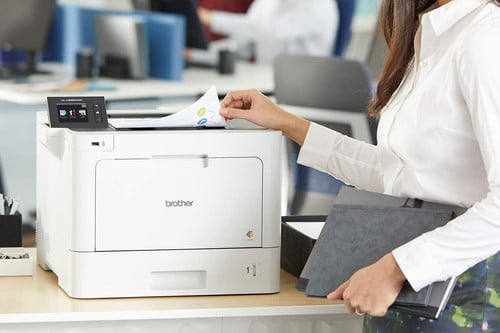
Ensure your staff are trained with rules around confidential data
A core principle of the GDPR concerns the ‘integrity and confidentiality’ of personal and sensitive data. Going back over the basics and raising awareness of the types of data processed in your organisation, may be the first important step to ensuring all employees understand their responsibilities when it comes to protecting the personal and sensitive data of your customers, the business and each other.
Documents Containing Personal Data of Staff and Customers classify as confidential. Under GDPR ‘personal data’ means ‘any information relating to an identifiable person who can be directly or indirectly identified in particular by reference to an identifier’.
Documents Containing sensitive data also classify as confidential? This includes sensitive personal data – The GDPR refers to sensitive personal data as “special categories of personal data”. This special category data, which includes an individual’s race, politics and genetics, is more sensitive and so needs more protection.
Organisation’s processing special category data, will also need to satisfy a specific condition under Article 9 of the GDPR.
Sensitive Business Data is also highly confidential. Documents which may be considered as commercially sensitive or require additional security measures include:
- Information relating to Intellectual Property
- Office plans, office IDs, internal procedure manuals
- Client contract details and commercial documents including invoices
Secure Storage of Confidential Paper Documents
Where the printing of documents containing confidential information is unavoidable due to legal or industry specific policies and practices, the physical documents should be processed in a manner that ensures appropriate security of the personal data, including protection against unauthorised or unlawful processing and against accidental loss, destruction or damage, using appropriate technical or organisational measures’. Technical measures associated with the security of physical documents containing personal or sensitive information should consider:
- the quality of doors and locks, and the protection of your premises by such means as alarms, security lighting or CCTV;
- how you control access to your premises, and how visitors are supervised;
- securing of non-public, confidential documents
- how you dispose of any paper waste, and how secure this is
The retention periods of physical documents held securely on your premises will depend on the type of information along with any legal requirements or industry specific policies.
Analysing your Confidential Waste Disposal
Once the intended use of a confidential document has been fulfilled, the document becomes confidential waste. Ensuring that all physical confidential documents, in all areas of the organisation are disposed of securely is highly important, with the appropriate technical measures in place to protect against unauthorised or unlawful processing and a data breach.
You should consider:
a) Where confidential documents are created.
Establish all areas or locations where physical documents containing personal and / or sensitive individual or business data may occur. Marking these on a map of your business premises may be a useful tool to help you. Locate any individual or shared printers and photocopiers and map against your existing general waste, recycling and confidential waste disposal points.
- Are there any new risk areas?
- Ensure there is no potential for confidential waste to be held or disposed in an unsecure place such as in tray or the wrong container
b) The quantity of confidential documents created per week or month
By understanding the volume of confidential waste and the frequency of disposal, you can ensure the appropriate collection and destruction measures are in place to reduce risks to data security.
- Are your current confidential waste containers large enough for the volume your company produces?
- When are documents collected for destruction?
- Do you provide shredders and shredding facilities on site that meet the right levels of security for the confidential waste you generate?
- Or do you have an agreement with a confidential waste collection service, who will securely collect and shred the documents for you?
c) Where and how is confidential paper waste currently disposed for collection before destruction
Your current provisions may adequately fulfil your data security requirements, however it is worth rechecking the following points:
- If existing confidential waste bins are underused is it time to improve staff communication and training?
- Could the location of the waste collection containers be improved to be more accessible?
- Are existing containers lockable and locked?
- Is the signage clear and concise enough on your current confidential waste bins?
d) Who has access to your confidential waste once it is disposed?
Once confidential documents are disposed of inside a secure container…
- Who is responsible for emptying them and transporting to your shredding facilities or secure destruction bins?
- What data protection training have they received?
- What security checks do they follow and where are confidential bin keys stored?
Choosing the right confidential waste bin for your company
View our range of confidential document waste bins here;

Answering the above questions will help you identify the results you need, such as the quantity and capacity of the bins you require. Key considerations for what bins you need should include: Security, capacity, locations, style.
Security
The most important feature of a confidential paper bin is the level of security it provides. It is essential to dispose of the documents in a separate designated container, away from any other waste or non-confidential paper. Strong, lockable bins with a solid enclosed lid and thinly slotted aperture are an ideal solution. Refreshing your recycling systems can get costly, so it’s important to ensure that you get the most out of a new system, without breaking the bank. Whilst we usually recommend keeping all of your waste streams in one station, and using the same stations throughout your facility, some organisations prefer to keep confidential waste as a separate bin, to ensure it is not confused with standard paper waste. It is important to weigh up what will work best for your organisation in terms of security.
Whatever you choose, we highly recommend getting rid of desk-side waste bins. This could prevent people making the journey to the confidential waste bin, or make things more confusing. It also discourages recycling as people don’t have to make the journey to the recycling station.
Capacity
The volume of confidential waste produced may vary from one area in your business to the next, and the frequency of collections will also influence the bin capacity that is required. Floor space is another factor to consider, as a higher capacity bin will generally have a larger footprint. You may require a mix of co-ordinating confidential waste bins with different capacities depending on volume of waste, collection schedules and available space.
Style
The style of the bin is just as important as the practicality. A professional, smart appearing confidential waste bin with clear signage can be vital in impressing the message about the seriousness of data protection in your organisation and how this is perceived by employees, customers and visitors. With the addition of clear, concise and recognisable graphics or labelling, employees are more likely to use a purposely designed container such as the Agile bin, the Pronto bin or the Cube bin. For clients with large state-of-the-art offices we recommend a recycling station such as Aspire or Multi-bin, so you can customise the bin station to suit your interior design.
Location
To encourage appropriate usage of the confidential waste bins, it is important that they are situated in accessible office locations, and locations that make sense the most for example close to printers. How many confidential waste bins do you need in the building? It all depends on the type of office you have. An office with a higher density of people, such as a call centre, will certainly need more bins than a design studio with 25 people.
WE RECOMMEND:
1. Nobody should be more than 10-15 steps away from a recycling/waste point.
2. One bin station should serve about 30-35 people.
These rules certainly aren’t hard and fast, but they’ll give you a good steer on how many recycling stations you need to purchase.
In high risk areas, consider additional technical measures such as fixing the bins to the ground or wall or placing them out of sight inside desk or office storage units. This may be appropriate for smaller confidential waste solutions. Many of our clients choose to include a lockable confidential waste stream in their recycling station, alongside other waste streams. The benefit of a recycling station, such as an aspire, multi-bin or bespoke is you can tailor it to perfectly suit your buildings interior design. Here are some examples of solutions we have provided other large organisations;
There is sure to be something in our range of versatile, stylish and even customisable solutions available in various capacities and shapes for any office interior. Browse now…
Our Aspire Recycling Stations can be completely tailored to suit your needs to make it easy as possible for your staff to recycle, and to reach the best possible recycling rates. Some of our clients want specific waste streams (E.G Confidential waste), colours, graphics and finishes to match the interior design of their offices, kitchen, breakout facilities. We can help with a broad range of options so you can truly make your Aspire Recycling Station your own! Our recycling stations are proudly made in Britain, from sustainably sourced wood (FSC approved).
To help your circular story even further, our recycling stations are fitted with the Longopac continuous liner system, proven to decrease plastic usage by up to 70%, as well as help you save on labour and waste collection costs. Each liner only takes 20 seconds to change and the next liner is always there ready to go, which can cut your time spent emptying bins by 38%!
What about shredding confidential paper waste, and collection of the confidential waste?
The contents of your confidential waste bins should be sealed in security bags prior to shredding or collection by a waste contractor. After collecting or shredding of confidential waste, it can either be destroyed on-site or off-site. On-site waste destruction enables the responsible person/s to watch over the whole destruction process. On the other hand, off-site disposal takes place at a legally designated point away from the document owner’s location. Once you have destroyed all your classified document waste, a Certificate of Destruction and Waste Transfer Note is issued. In off-site destruction, a trained professional collects your sealed boxes and loads them in a container for transportation to the disposal site. Then, they are shredded and sent off for recycling. Many waste collection companies offer a secure shredding service will ensure you comply fully with all data privacy and protection regulations.
You need a confidential waste management service you can trust, that comply with BS EN 15713 accreditation. For example Veolia, who’s facilities are accredited to ISO 9001, ISO14001 and ISO18001 and their secure collection and shredding service include:
Transportation to our secure shredding facilities
24-hour CCTV to monitor your waste from delivery to destruction
A certificate of destruction
You also have the option to visit their facility to witness the shredding process for yourself, so you can have full confidence that any documents will be handled in a secure and professional manner.
Benefits of Onsite Waste Destruction:
- Enables you to oversee the whole process onsite
- A carefully vetted and CRB-checked professional arrives at location
- Your sealed documents will be loaded into a shredder
- You are issued with a Certificate of Destruction and a Waste Transfer Note, so your business can ensure that its obligations have been fulfilled.
- Shredded paper waste will then be sent off to be recycled
Benefits of Offsite Waste Destruction:
- A trained professional will arrive and collect your sealed bag of confidential documents
- They will then load them into a locked container
- The waste is taken back to their site in a tracked van
- Your sensitive documents are shredded, baled, and sent off to be recycled
- Your business will be issued with a Certificate of Destruction and a Waste Transfer Notice to show that all obligations have been fulfilled

